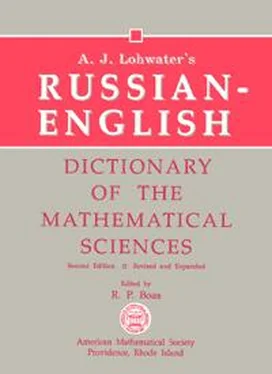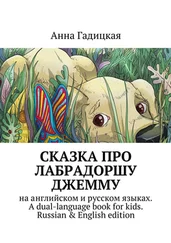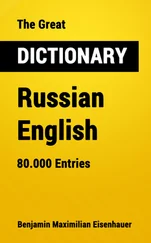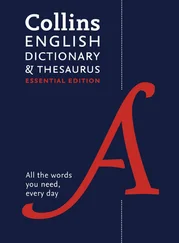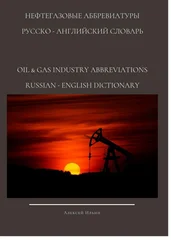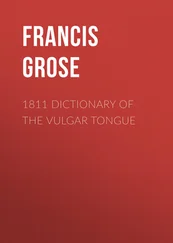Arthur Lohwater - A. J. Lohwater's Russian-English Dictionary of the Mathematical Sciences
Здесь есть возможность читать онлайн «Arthur Lohwater - A. J. Lohwater's Russian-English Dictionary of the Mathematical Sciences» весь текст электронной книги совершенно бесплатно (целиком полную версию без сокращений). В некоторых случаях можно слушать аудио, скачать через торрент в формате fb2 и присутствует краткое содержание. Жанр: Словари, Математика, Языкознание, на английском языке. Описание произведения, (предисловие) а так же отзывы посетителей доступны на портале библиотеки ЛибКат.
- Название:A. J. Lohwater's Russian-English Dictionary of the Mathematical Sciences
- Автор:
- Жанр:
- Год:неизвестен
- ISBN:нет данных
- Рейтинг книги:4 / 5. Голосов: 1
-
Избранное:Добавить в избранное
- Отзывы:
-
Ваша оценка:
- 80
- 1
- 2
- 3
- 4
- 5
A. J. Lohwater's Russian-English Dictionary of the Mathematical Sciences: краткое содержание, описание и аннотация
Предлагаем к чтению аннотацию, описание, краткое содержание или предисловие (зависит от того, что написал сам автор книги «A. J. Lohwater's Russian-English Dictionary of the Mathematical Sciences»). Если вы не нашли необходимую информацию о книге — напишите в комментариях, мы постараемся отыскать её.
A. J. Lohwater's Russian-English Dictionary of the Mathematical Sciences — читать онлайн бесплатно полную книгу (весь текст) целиком
Ниже представлен текст книги, разбитый по страницам. Система сохранения места последней прочитанной страницы, позволяет с удобством читать онлайн бесплатно книгу «A. J. Lohwater's Russian-English Dictionary of the Mathematical Sciences», без необходимости каждый раз заново искать на чём Вы остановились. Поставьте закладку, и сможете в любой момент перейти на страницу, на которой закончили чтение.
Интервал:
Закладка:
Неравенство (11) слабее чем неравенство (12). → The inequality (11) is weaker than the inequality (12).
Consider also the following sentence:
Предложение P эквивалентно Q . → Proposition P is equivalent to Q .
The present tense of быть, "to be," is omitted in both sentences. However, often a dash (—) is used in place of the omitted verb, as in the following example:
Если E — некоторое множество точек комплексной плоскости, ... → If E is a set of points of the complex plane, ...
Occasionally, the forms естьand суть, from быть, are used:
Граница этой области есть окружность K r , где r — постоянная. → The frontier of this domain is the circle K r , where r is a constant.
Матрицы суть спиновые матрицы Паули. → The matrices are the Pauli spin matrices.
2. Unlike the present tense, the future and past tenses of бытьare never omitted. Furthermore, when бытьis used in the future or the past, the predicate is often in the instrumental case:
Если α алгебраическая величина относительно Σ, a Σ — алгебраическое поле относительно Δ, то α будет алгебраическим относительно Δ. → If α is algebraic with respect to Σ, and Σ is algebraic with respect to Δ, then α will be algebraic with respect to Δ.
3. The verb являться.The verb являться(to appear, to present oneself) is often used to replace the present tense of "to be" in sentences which would be confusing if lacking a verb. In such instances, the verb is translated as the appropriate form of "to be." The third-person singular and plural forms are, respectively: является, являются. The predicate of these verb forms is always in the instrumental case. The following sentences illustrate this construction:
Такая функция существует и является единственной. → Such a function exists and is unique.
Единственными изоморфизмами топологической группы T в себя являются тождественное отображение и симметрия X →– X . → The only isomorphisms of the topoiogical group T into itseif are the identity map and the symmetry X →– X .
Вероятность P будет являться абстрактной копией эмпирической частоты. → The probability P will be an abstract counterpart of the empirical frequency ratio.
| В. Verb Conjugations |
Russian verbs are classified as members of either the first or second conjugation, according to their nonpast personal endings. It is possible, however, for a verb to exhibit a mixed conjugation; that is, some of its endings are those of the first conjugation, while the rest are from the second. The following chart shows the endings of the two conjugations:
| First Conjugation | Second Conjugation | |||||||
| Singular | Plural | Singular | Plural | |||||
| 1st person | -ю (-у) | -ем | -ю (-у) | -им | ||||
| 2nd person | -ешь | -ете | -ишь | -ите | ||||
| 3rd person | -ет | -ют (-ут) | -ит | -ят (-ат) 3 |
The verb читатьis of the first conjugation: я читаю, ты читаешь, он читает, мы читаем, вы читаете, они читают. The verb говоритьis of the second conjugation: я говорю, ты говоришь, он говорит, мы говорим, вы говорите, они говорят. The forms in parentheses, first person singular and third person plural, are common alternate endings and occur when dictated by certain spelling conventions.
A verb typically consists of several components when fully conjugated, although there are variations; perfective verbs, for instance, have no present tense, and thus no present participles. Among the inventory of components are the infinitive, the present, future, and past tenses (the indicative mood), the imperative mood, the conditional mood, the present participles, the past participles, and the gerund, or adverbial participle.
1. Sample verb conjugations.The following are sample conjugations. The Appendix includes a more comprehensive set of paradigms, as well as a list of common irregular verbs and their conjugations. The paradigms in the Appendix follow the given format, but are somewhat condensed and abbreviated where possible (for instance, only the masculine form of a participle is given).
| делать(imperfective), "to do" | ||||||
| present tense | ||||||
| я делаю | I do, I am doing | мы делаем | we do | |||
| ты делаешь | you do | вы делаете | you do | |||
| он делает | he, it does | они делают | they do | |||
| она делает | she, it does | |||||
| оно делает | it does | |||||
| future tense | ||||||
| я буду делать | I will do | мы будем делать | we will do | |||
| ты будешь делать | you will do | вы будете делать | you will do | |||
| он будет делать | he, it will do | они будут делать | they will do | |||
| она будет делать | she, it will do | |||||
| оно будет делать | it will do | |||||
| past tense делал, делала, делало, делали | ||||||
| я делал | I did, I was doing | мы делали | we did, we were doing | |||
| ты делал(а) | you did, you were doing | вы делали | you did, you were doing | |||
| он делал | he, it did, he, it was doing | они делали | they did, they were doing | |||
| она делала | she, it did, she, it was doing | |||||
| оно делало | it did, it was doing | |||||
| imperative делай (singular); делайте (plural) do! make! | ||||||
| participles | ||||||
| adverbial participle | ||||||
| делая | doing, making, if we make | |||||
| сделать(perfective), "to do" | ||||||
| no present tense | ||||||
| future tense | ||||||
| я сделаю | I will do | мы сделаем | we will do | |||
| ты сделаешь | you will do | вы сделаете | you will do | |||
| он сделает | he, it will do | они сделают | they will do | |||
| она сделает | she, it will do | |||||
| оно сделает | it will do | |||||
| past tense сделал, сделала, сделало, сделали | ||||||
| я сделал | I did | мы сделали | we did | |||
| ты сделал(ла) | you did | вы сделали | you did | |||
| он сделал | he, it did | они сделали | they did | |||
| она сделала | she, it did | |||||
| оно сделало | it did | |||||
| imperative сделай (singular); сделайте (plural) do! make! | ||||||
| participles | ||||||
| adverbial participle | ||||||
| сделав | having done, having made |
2. The infinitive.The infinitive does not indicate person or tense — it describes the action. The infinitive is translated as "to X"; the imperfective infinitive делатьis translated as "to do," as is the perfective infinitive сделать. The infinitive of a verb consists of the infinitive stem plus the infinitival ending. In Russian, there are three infinitive types: those ending in -ть, those ending in -ти,, and those ending in -чь. The ending -ть is the most common and includes such verbs as делать(to do), сделать(to do), сесть(to sit), говорить(to speak), and заниматься(to study). 4 The ending -ти is found in some infinitives, such as: идти(to go), расти(to grow), and найти(to find). The third ending, -чь, occurs in the following verbs: жечь(to burn), течь(to flow), and мочь(to be able to).
Читать дальшеИнтервал:
Закладка:
Похожие книги на «A. J. Lohwater's Russian-English Dictionary of the Mathematical Sciences»
Представляем Вашему вниманию похожие книги на «A. J. Lohwater's Russian-English Dictionary of the Mathematical Sciences» списком для выбора. Мы отобрали схожую по названию и смыслу литературу в надежде предоставить читателям больше вариантов отыскать новые, интересные, ещё непрочитанные произведения.
Обсуждение, отзывы о книге «A. J. Lohwater's Russian-English Dictionary of the Mathematical Sciences» и просто собственные мнения читателей. Оставьте ваши комментарии, напишите, что Вы думаете о произведении, его смысле или главных героях. Укажите что конкретно понравилось, а что нет, и почему Вы так считаете.
